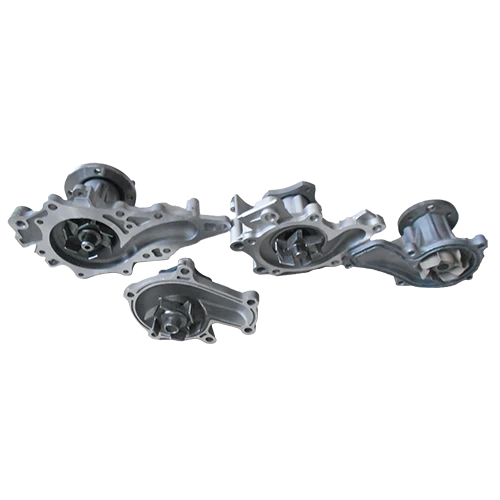Mobile:+86-311-808-126-83
Email:info@ydcastings.com
Exploring the Properties and Applications of CF8M Stainless Steel Alloys
Understanding CF8M Steel Its Composition, Properties, and Applications
CF8M steel is an alloyed stainless steel that is widely recognized for its excellent corrosion resistance and mechanical properties. Composed primarily of iron, chromium, and nickel, CF8M belongs to the family of austenitic stainless steels, making it a popular choice for various industrial applications. The designation CF8M typically indicates that the material contains approximately 18% chromium and 8% nickel, along with a trace of molybdenum, enhancing its performance characteristics even further.
Composition and Properties
The chemical composition of CF8M steel primarily includes - Chromium (18%) Provides corrosion resistance and contributes to the steel's ability to withstand higher temperatures. - Nickel (8%) Increases toughness and ductility, making the steel more malleable and easier to work with during fabrication processes. - Molybdenum (2-3%) Enhances resistance to pitting corrosion, particularly in chloride environments.
Other alloying elements may be present in smaller quantities, which can further improve specific properties. The resulting microstructure of CF8M is a face-centered cubic (FCC) lattice, typical of austenitic stainless steels, which contributes to its flexibility and resilience.
CF8M steel boasts several key properties that make it advantageous for various applications - Corrosion Resistance CF8M's high chromium content provides exceptional resistance to oxidation and corrosion from various chemical environments, such as acids and chlorides. - High-Temperature Stability It maintains its mechanical integrity at elevated temperatures, making it suitable for high-heat applications. - Non-Magnetic Unlike some other steel types, CF8M retains its non-magnetic properties, which is essential for certain electronic and medical applications. - Good Fabricability CF8M can be easily welded, machined, and fabricated into complex shapes, enabling engineers and manufacturers to create intricate components.
.
Due to its remarkable properties, CF8M steel is used in a wide array of industries. Its primary applications include
cf8m steel

1. Chemical Processing In environments where corrosive substances are prevalent, CF8M is an ideal choice for constructing pumps, valves, and fittings due to its resistance to degradation.
2. Petrochemical Sector CF8M components are often used in oil and gas pipelines, storage tanks, and equipment designed to handle corrosive fluids.
3. Food and Beverage Industry The material's non-reactive nature and cleanliness make it a suitable option for manufacturing equipment in the food processing sector.
4. Marine Applications CF8M's ability to resist corrosion in saline environments makes it a preferred material for marine hardware and equipment.
5. Pharmaceutical Manufacturing In this sector, the corrosion resistance and ease of cleaning associated with CF8M are critical for maintaining sanitary conditions.
Conclusion
CF8M steel exemplifies a remarkable combination of strength, durability, and corrosion resistance, making it a vital material across numerous sectors. As industries continue to prioritize reliability and safety in their equipment and processes, the demand for high-performance alloys like CF8M is expected to grow. Understanding the properties and applications of CF8M can help engineers and manufacturers make informed choices that lead to enhanced performance and longevity of their products. As technology advances and new applications emerge, CF8M steel is likely to remain a cornerstone material in the quest for innovation and excellence in metalworking.
-
Valve Body Acts as the “Heart” of Flow ControlNewsMay.19,2025
-
Understanding the Importance of ImpellersNewsMay.19,2025
-
Importance of Automobile Water PumpsNewsMay.19,2025
-
How an Engine Oil Pan Works to Keep Your Car LubricatedNewsMay.19,2025
-
Common Materials Used in Pump Impeller ManufacturingNewsMay.19,2025
-
Ball Valve Casting in Modern Pipeline SystemsNewsMay.19,2025











